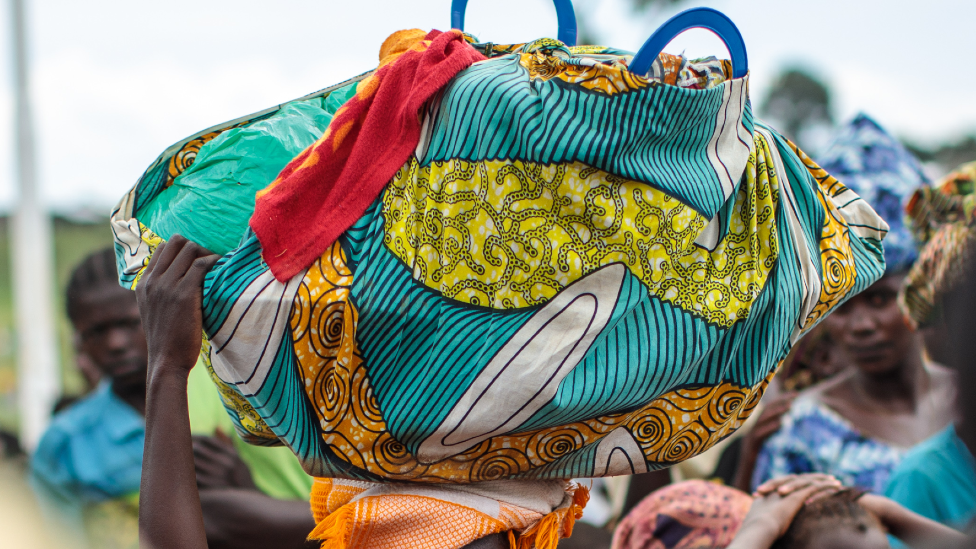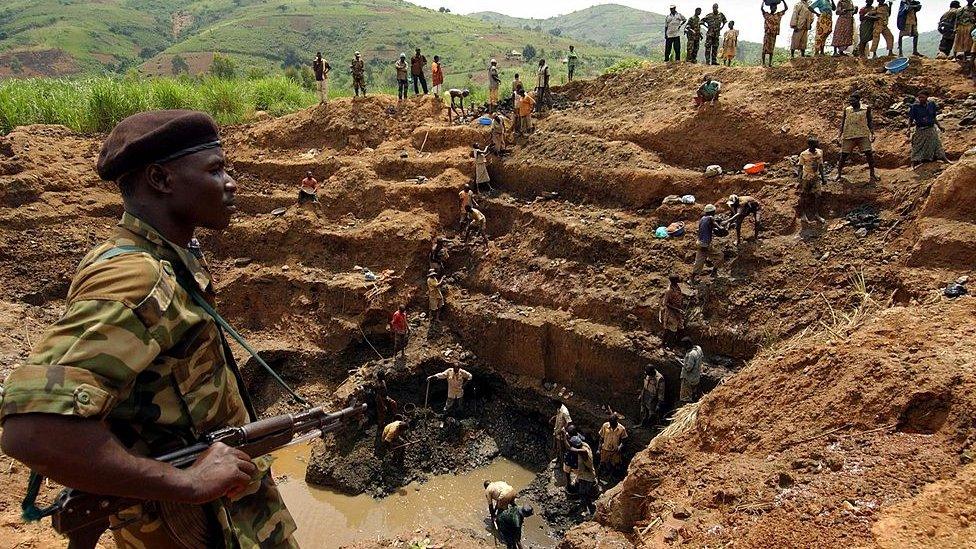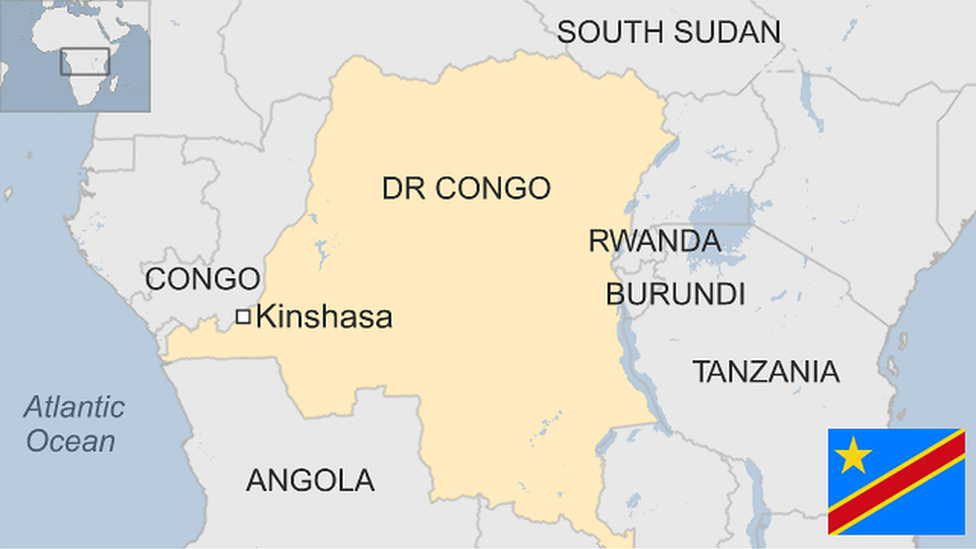Coronavirus: Uganda opens border for DR Congo refugees
- Published

Uganda hosts more than 400,000 refugees from DR Congo alone and many more from South Sudan
Uganda has opened part of its border with the Democratic Republic of Congo to allow in thousands of people stuck in no-man's land for more than a month.
At least 3,000 of them fled their homes in May after inter-communal clashes in north-eastern Ituri province.
But they were unable to cross into Uganda to seek safety as the country had closed its borders in March to control the spread of coronavirus.
It has been agreed the refugees will be quarantined before being settled.
This will happen for 14 days at a new isolation centre, 13km (eight miles) from the border.
The UN's refugee agency (UNHCR) says sample testing will be carried out on the group to see if coronavirus is present amongst them.
This will help authorities decide when the refugees can be transferred to camps.


GLOBAL SPREAD: Tracking the pandemic
VIDEO: The 20-second hand wash
VACCINE: How close are we to finding one?
HOW A VIRUS SPREADS: An explanation
WHAT IS A PANDEMIC? The WHO's definition

Two border crossings in Uganda's Zombo district temporarily opened on Wednesday and it is expected all the refugees will be able to cross over in three days.
Uganda hosts more than 1.4 million refugees - most have fled from South Sudan, while about 30% come from DR Congo.


Aid agencies have talked about the difficulties of ensuring social distancing and sanitation in refugee settlements, BBC Africa correspondent Catherine Byaruhanga reports.
Fifty-two refugees have so far tested positive for Covid-19 in Uganda out of nearly 900 confirmed cases.

You may also be interested in:
The African country that welcomes refugees

The UN says it is concerned about reports of rising violence in eastern DR Congo, where a two-year Ebola outbreak was declared over last week.
"DR Congo has one of the highest rates of internal displacement in the world," UNHCR spokesperson Babar Baloch said on Wednesday, external.
He said that about six million people had fled their homes - five million remain in the country while a million have "sought safety in neighbouring countries as refugees".
"UNHCR is receiving accounts of the way armed groups are unleashing terror on people as they flee, in displacement sites and hosting areas, and when they attempt to return, including reports of killings and mutilation, sexual violence and looting."
Why is there fighting in Ituri?

Gold mines have been exploited by several powerful armed groups over the years
Ethnic violence in gold-rich Ituri, involving the Lendu and Hema communities, has soared since March. At least 531 civilians have been killed by armed groups in the region between October and May, 375 of them since March, according to the UN.
Human Rights Watch says much of the bloodshed has its roots in competition for control of gold mines, exploited for decades by rebels, politicians and military officials who smuggle the gold into neighbouring countries.
UN human rights commissioner Michelle Bachelet said in June , externalthat since 2017, the main armed group active in the region had been Codeco, mainly drawn from the Lendu community. She said it and other Lendu fighters had been pursuing a strategy of slaughtering local residents - mainly the Hema, but also the Alur - in order to control the region's natural resources.
The International Criminal Court (ICC) has found several warlords guilty of war crimes committed in Ituri. In mid-March two of them - Thomas Lubanga, who led a Hema militia, and Germain Katanga, who led a Lendu one - were released by the Congolese government after serving their sentences.
- Published31 January
